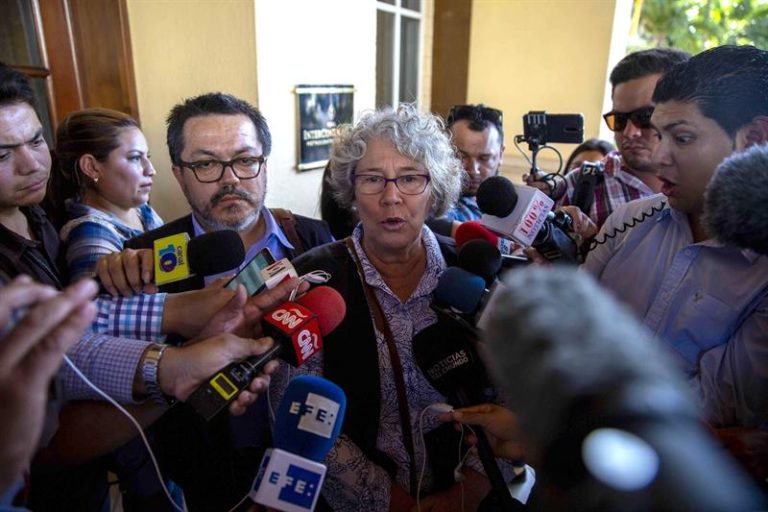28 de octubre 2019

Children of Exile: The Births “Sowing Hope” in the Camp of Nicaraguan Farmers

PUBLICIDAD 1M
PUBLICIDAD 4D
PUBLICIDAD 5D
Since April 2018, Panama has received 6,041 requests for asylum from Nicaraguans fleeing the Ortega regime

The UN High Commissioner for Refugees reports that since April 2018, Panama has received a total of 6,041 applications for asylum from Nicaraguans fleeing the repression of the Daniel Ortega/Rosario Murillo regime. These statistics were published in a report elaborated by the Special Monitoring Mission for Nicaragua, an offshoot of the Inter-American Commission for Human Rights, during a visit the Mission made to Panama last month.
During the Mission’s visit, they interviewed Nicaraguans who offered their testimonies and their experiences regarding existing difficulties with the processing of immigration paperwork and with achieving recognition for their status as refugees. They also spoke of their fear of returning to their home country due to the continuing crisis and the threat of reprisals against them for having participated in public anti-government demonstrations.
“They reported on the obstacles they face in accessing employment, education and other services in Panama. In that context, the IACHR highlights the testimonies of Nicaraguan students, who noted the impossibility of accessing further education or resuming their university careers due to the lack of documents crediting their studies, and their academic transcripts from Nicaragua. That situation exposes them to the risk of revictimization, since many of them were forced to flee Nicaragua as a result of the state repression, which is selectively concentrated on students,” the document reads.
The mission met with authorities of the Panamanian Foreign Ministry, People’s Advocacy, and with the Immigration Office and the National Office for the Protection and Attention to Refugees. These institutions described their work and offered official statistics on migratory matters. They also expressed their concerns about the existing challenges to improving the local integration of the Nicaraguan refugees in Panama, in the face of the increased number of requests for asylum.
“The IACHR also met with the adjunct representative of the United Nations Office of the High Commissioner for Human Rights in Panama, and with regional representative of the UN High Commissioner for Refugees. Accompanied by the latter, the Commission visited the Center for Integral Attention to Refugees and Migrants Luisa Home,” states part of the report.
Forced migration
As has been noted in studies published earlier, this organization identified the fact that the immigration of Nicaraguans to this country has the characteristics of a forced migration, stemming from the grave human rights crisis that Nicaragua has been experiencing since April of last year.
“The Commission reiterates that the forced migration of Nicaraguan people will continue progressively increasing until the Nicaraguan state ends the repression and the criminalization of all exercises of peaceful protest and demonstrations of political opposition,” the report notes.
Luis Ernesto Vargas, rapporteur on the rights of migrants, explained that with the information gathered during the visit, the essential role of the destination States to protect and support expedited and sustainable processes of social integration for the people displaced by persecution and was left clear, as well as their role in affording protection, access to documents, services, and to guarantee them possibilities for formal employment.
“In this context, the possibility of accessing formal employment is central to the quality of the social inclusion and protection of migrants and refugees,” stated Flavia Piovesan, rapporteur for Panama. She added that among those requesting asylum there are also journalists, human rights advocates, students and other people who have been victims of human rights violations.
Archivado como:
PUBLICIDAD 3M
Periodista. Investiga temas de medio ambiente, corrupción y derechos humanos. Premio a la Excelencia Periodística Pedro Joaquín Chamorro, Premio de Innovación Periodística Connectas, y finalista del premio IPYS en el 2018.
PUBLICIDAD 3D